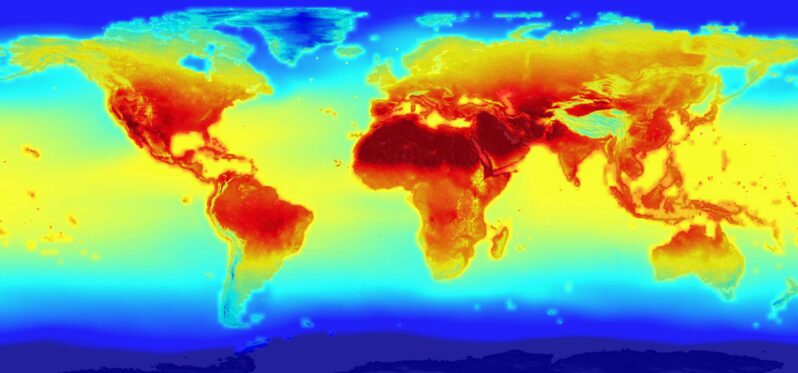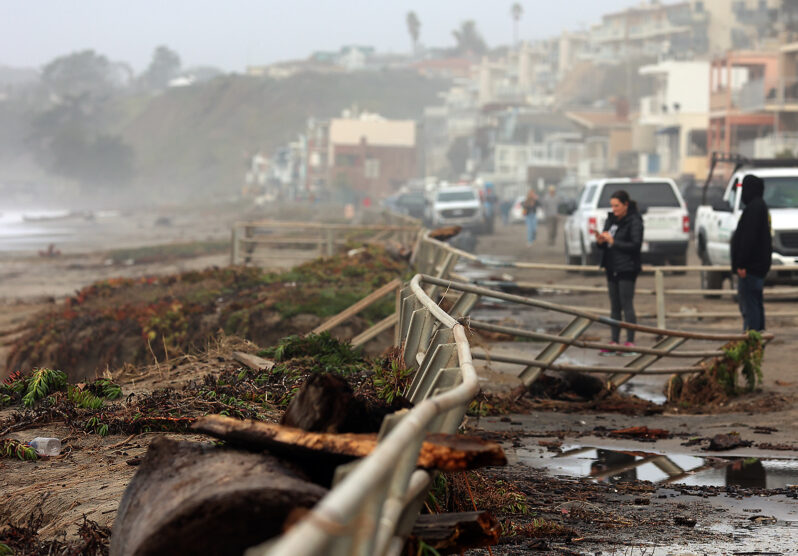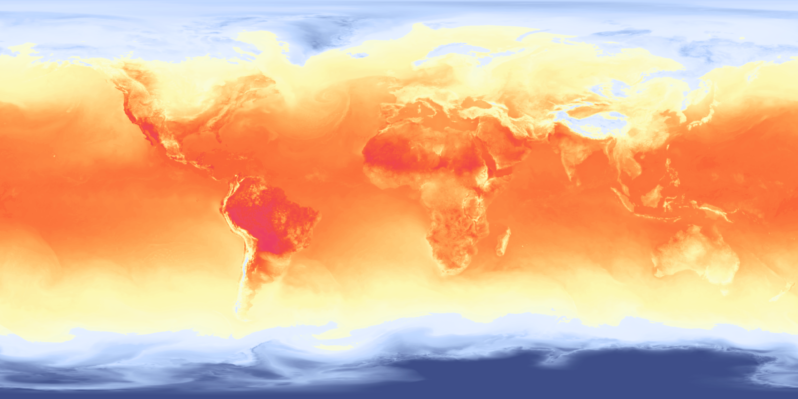Is there a wrong way to talk about climate change? – Grist Magazine

In a provocative new book, Genevieve Guenther argues that too many conversations are happening on the fossil fuel industry’s terms….
This Isn’t Your Grandparents’ Summer Heat – Scientific American

The face of summer is transforming, as people today face more frequent, longer-lasting and hotter heat waves than they did several decades ago…
Earth Just Had the Hottest 12-Month Span in Recorded History – Scientific American

As this past October came to a close, it marked the hottest 12-month period ever recorded, a new analysis finds. This stark milestone is the latest in a string of superlatives to emerge this year that show how much carbon pollution has warmed the planet—and how that trend is accelerating. It also comes just weeks before international negotiators are set to meet and hash out issues around achieving the Paris climate accord’s fundamental goal: limiting global warming to no more than 1.5 degrees Celsius (2.7 degrees Fahrenheit) above preindustrial temperatures…
Research Confirms Link Between Snow Crab Decline and Marine Heatwave – NOAA Fisheries

“During the marine heatwave, snow crabs faced a triple threat,” said lead author and Alaska Fisheries Science Center stock assessment scientist Cody Szuwalski. “Their metabolism increased, so they needed more food; their habitat was reduced so there was less area to forage; and crabs caught in our survey weighed less than usual. These conditions likely set them up for the dramatic decline we saw in 2021…”
Climate crisis costing $16m an hour in extreme weather damage, study estimates – the Guardian

The damage caused by the climate crisis through extreme weather has cost $16m (£13m) an hour for the past 20 years, according to a new estimate.
Storms, floods, heatwaves and droughts have taken many lives and destroyed swathes of property in recent decades, with global heating making the events more frequent and intense. The study is the first to calculate a global figure for the increased costs directly attributable to human-caused global heating…
September shattered global heat record — and by a record margin – the Washington Post

Temperatures around the world last month were at levels closer to normal for July according to separate data analyses by European and Japanese climate scientists.
September’s average temperature was nearly 1 degree Celsius (1.7 degrees Fahrenheit) above 1991-2020 levels — or about 1.7 to 1.8 degrees Celsius (3.1 to 3.2 degrees Fahrenheit) above normal from before industrialization and the widespread use of fossil fuels…
It’s Not Just Coral. Extreme Heat is Weakening Entire Marine Ecosystems in Florida – Grist Magazine

Anemones, sponges, and jellyfish are bleaching throughout the Everglades amid record temperatures. It’s a troubling sign for Florida Bay and beyond.
Sorry, Honey, It’s Too Hot for Camp (Podcast) – Atlantic Radio

Summer is getting too hot and dangerous, killing the childhood of our imaginations.
A heat dome in Texas. Wildfire smoke polluting the air in the East and Midwest. The signs are everywhere that our children’s summers will look nothing like our own. In this episode, we talk with the climate writer Emma Pattee about how hot is too hot to go outside. The research is thin and the misconceptions are many—but experts are quickly looking into nuances of how and why children suffer in the heat, so we can prepare for a future that’s already here…
July 4, 2023: The Hottest Day in over 125,000 Years

“We have never seen anything like this before”
– Carlo Buontempo, director of Europe’s Copernicus Climate Change Service quoted in the Washington Post, 07-06-2023…
